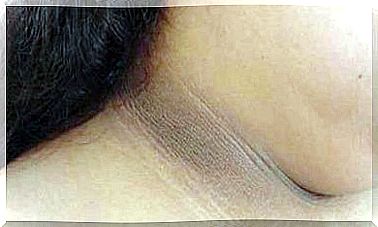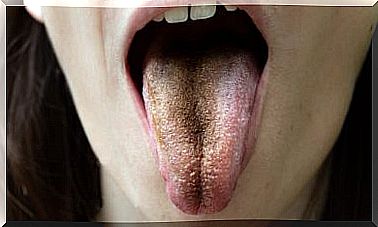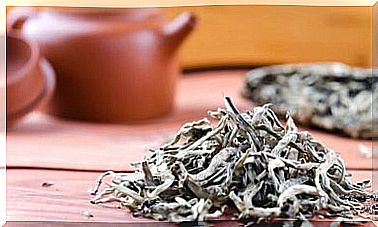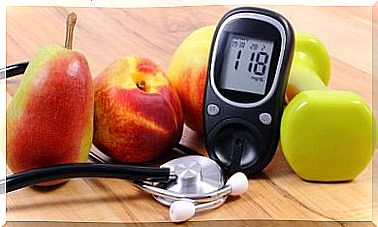10 Tips For Managing Crohn’s Disease
Crohn’s disease is a form of inflammatory bowel disease. Although your treatment may include some medications, in general it can be improved with lifestyle changes.

Crohn’s disease is an inflammatory bowel disease whose exact cause has not been established. Doctors suggest that a meeting of genetic, environmental, and immune system factors are involved in its development. What can you do to control Crohn’s disease?
More than 780,000 Americans are estimated to have this condition. In addition, cases have increased alarmingly in recent years around the world. The disease can compromise the health of any part of the gastrointestinal tract. It often triggers inflammation, diarrhea, fatigue, or loss of appetite.
Managing Crohn’s Disease: 10 Tips That Help
The severity range of Crohn’s disease can range from mild to severe, with symptoms varying depending on the patient. In general, the treatment of this disease usually combines the administration of some medications with changes in diet and lifestyle. Here are 10 tips in detail.
1. Respect medical treatment

The first measure to control Crohn’s disease is to maintain medical treatment until the professional indicates it. Although the symptoms begin to improve, it is necessary to continue taking the medications to avoid relapses or complications.
2. Control Crohn’s disease: no to self-medication
Self-medication can be counterproductive when dealing with this inflammatory disease. Because of this, it is important to consult your doctor before taking any type of drug. It should not be overlooked that some have harmful side reactions or interactions.
3. Maintain a healthy and varied diet

Much of the treatment to control Crohn’s disease depends on eating habits. Therefore, even if it costs you, you will have to improve your diet. Adequate nutrition must be aimed at preventing and correcting the problems derived from this condition. So be sure to take:
- Complex carbohydrates (moderate servings)
- Vitamins and minerals in all its varieties
- Proteins (from lean meats, fish, and plant sources)
Similarly, avoid all foods that, in some way, worsen inflammation. These can include: saturated fat, red meat, whole dairy, fried foods, junk food or sugars, among others.
4. Avoid the consumption of certain painkillers in Crohn’s disease
Taking some pain relievers, such as ibuprofen or naproxen, can cause a crisis in Crohn’s disease patients. Therefore, in case of ailments, the use of paracetamol is preferable. In any case, the ideal thing to do is consult your doctor first.
5. Increase the consumption of probiotics

Ingesting sources of probiotics can help relieve the symptoms of this condition. Probiotics are cultures of “good” bacteria that help rebuild the gut microbiota. For this reason, its intake contributes to the control of inflammation caused by Crohn’s disease.
Some foods with probiotics are:
- Natural yogurt
- Kefir
- Sauerkraut
- Pickled cucumbers
- Kombucha tea
- Kimchi
6. Eat prebiotic foods
To complement the effects of good nutrition against this disease, it is advisable to increase the consumption of prebiotic foods. These are elements found in foods such as bananas, leeks, or asparagus. Its function is to feed the healthy bacteria in the intestine to promote their growth.
7. Manage stress

Bowel problems can be made more severe by poor handling of stressful situations. Although many overlook it, these types of emotions affect the health of the digestive system. Therefore, it is essential to practice relaxation habits, such as meditation, yoga or tai chi.
8. Stay away from tobacco to control Crohn’s disease
Cigarette addicted patients have a harder time controlling Crohn’s disease. The toxic components of tobacco worsen the irritation of the intestine and increase the relapses of the disease. Seek professional help to quit smoking.
9. Seek support

Understanding Crohn’s disease is not always easy. E n times can affect anxiety disorders and depression. Therefore, it is recommended that affected patients seek support from family, friends or people who have gone through the same problem.
10. Recognize irritating foods
It is wrong to blame food for Crohn’s disease crises. Currently there is not enough evidence to affirm that a specific food triggers this condition. Now, what can help your control is identifying irritating foods. If you are going through a crisis, limit your intake of:
- Processed foods or junk food
- Refined flours and derivatives
- Whole dairy products
- Peeled vegetables
- Laxative fruits
- Sugary or fizzy drinks
Have you been diagnosed with this condition? Then apply all the advice given. If you hardly suspect the disease, consult your doctor and discuss the symptoms you are experiencing.









